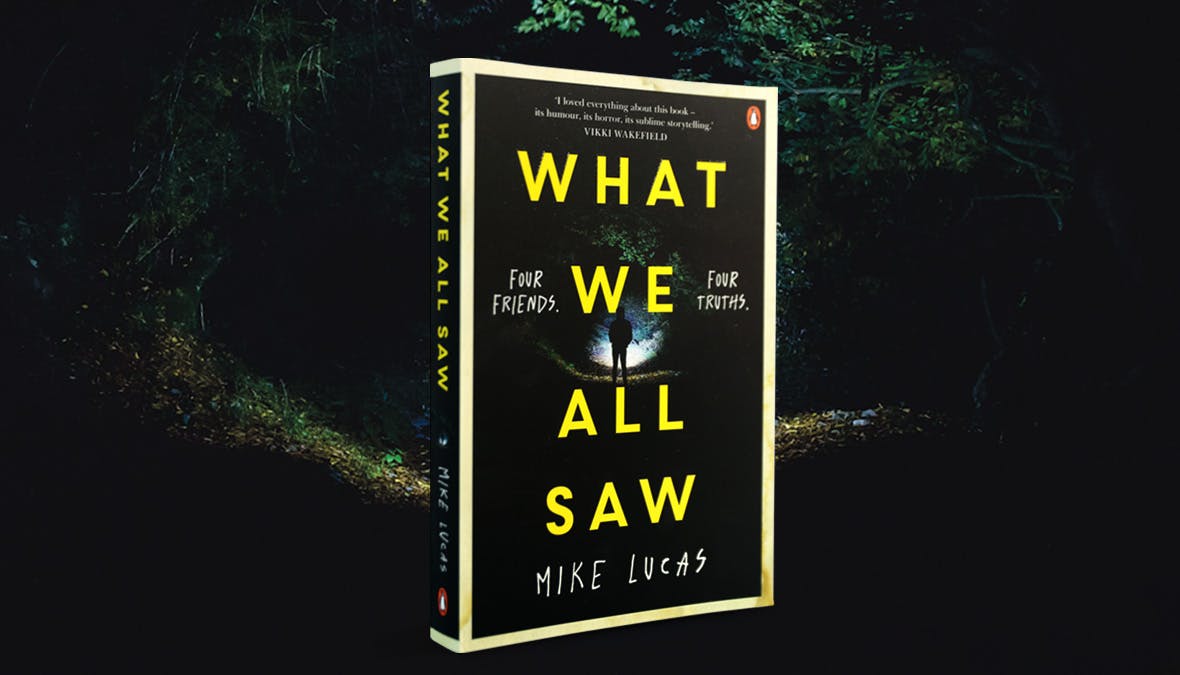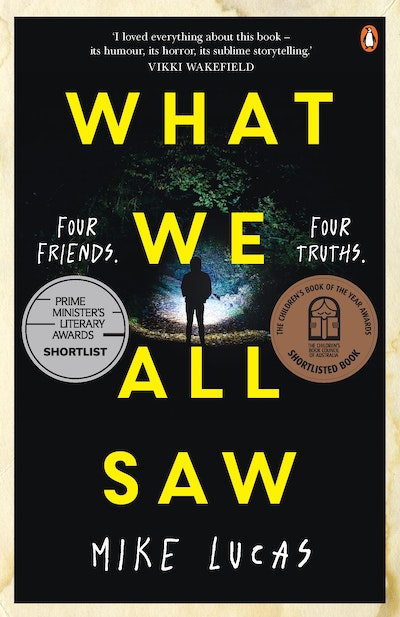Discuss the biggest YA thriller of 2022 with your reading group.
Four friends experience something supernatural, something terrifying, in the wood one summer. But what did they really see? Exploring truth versus belief, real versus unreal, folklore versus fact, and the power of story to change our perceptions, there’s so much to talk about after reading What We All Saw. Here are some questions to get you started.
- What do you believe happened? What was explained . . . and what remained a mystery?
- What does the novel have to say about the power of storytelling to influence our perceptions? How do Charlie’s and Mr Grant’s stories affect what the other characters think and believe?
- What techniques do Charlie and Mr Grant use to keep their listeners interested? Does the author use some of the same storytelling techniques? (Hint: Consider how pauses, distractions, cliffhangers, surprise, foreshadowing and conflict raise tension and intrigue.)
- Think about the title – What We All Saw – and how the story plays with the motif of ‘seeing’ and ‘sight’ and the five senses. What do each of the four friends see, hear, smell, taste and touch that become relevant to working out the ‘truth’? How do their senses mislead versus help them?
- ‘Witches only exist in stories. Everyone knows that. But what if the stories are real?’ How are witches portrayed in popular culture, and how were so-called witches treated in the past? What different beliefs about witches have societies held, and what was the result? Are any of the stories about witches real?
- What does What We All Saw have to say about how we treat people who are considered different? Which characters become scapegoats in the story, and why? Where can you see this kind of groupthink and scapegoating playing out in the world today?
- Did the tragedy and mystery that summer bring the friends together, or highlight their differences? Did you think the four friends would stay together when they went to high school? Why or why not?
- What tropes of the horror, fairytale or thriller genres does the author use? (Hint: an abandoned house, a local legend, a supernatural circus, nightmares, sinister scraping sounds, witches and more!) How does the author use these tropes, and how does he challenge them?
- What has changed for children between the 1970s and now? Could What We All Saw be set now? How would the story be different?
- Why do you think the author chose to use the framing device of an adult looking back at childhood? Did it affect your reading of the story? What other books or films have you read or seen that use this device?
- Mike Lucas wrote What We All Saw while recovering from eye surgery. Why do we write or read stories about trauma or tragedy? How do such stories increase our empathy and help us process our own emotions?
FOUR FRIENDS. FOUR TRUTHS. WHAT DO YOU BELIEVE?













